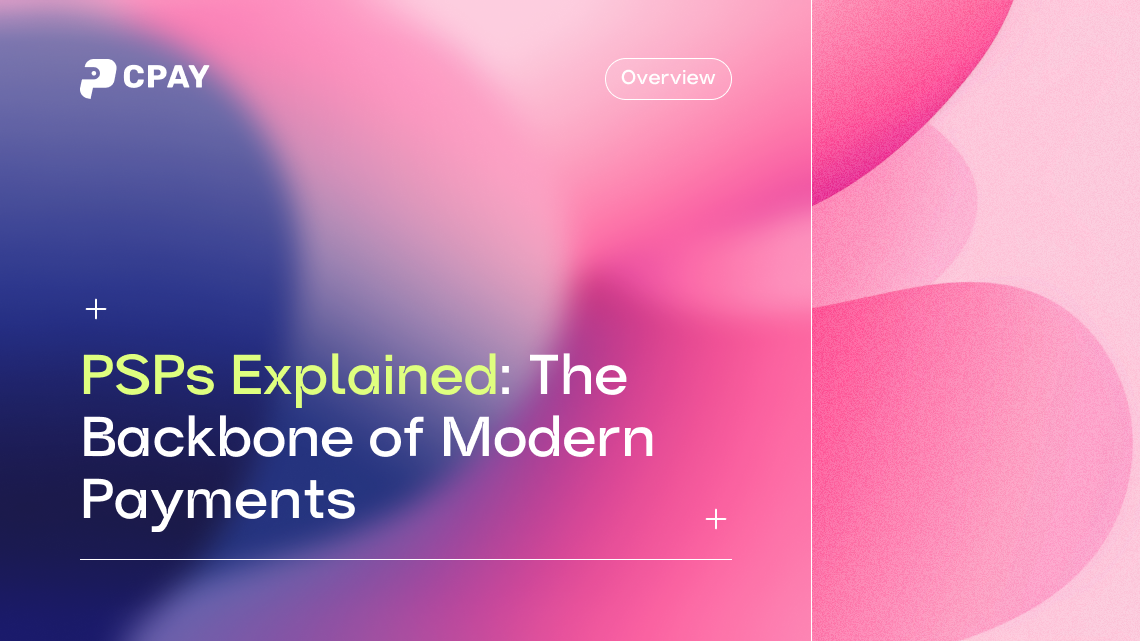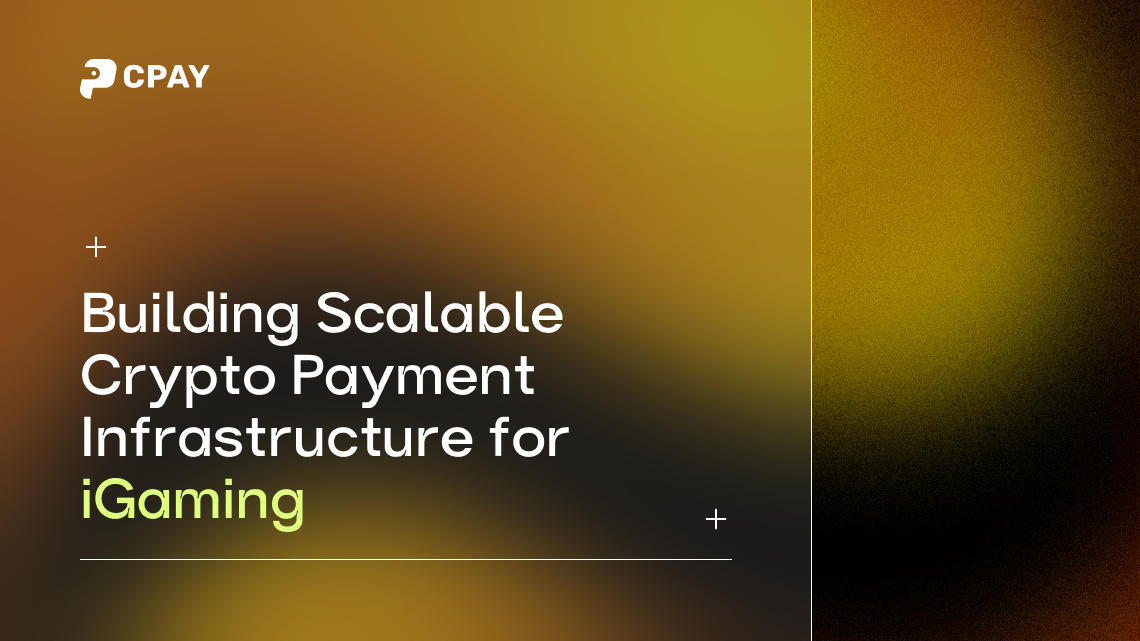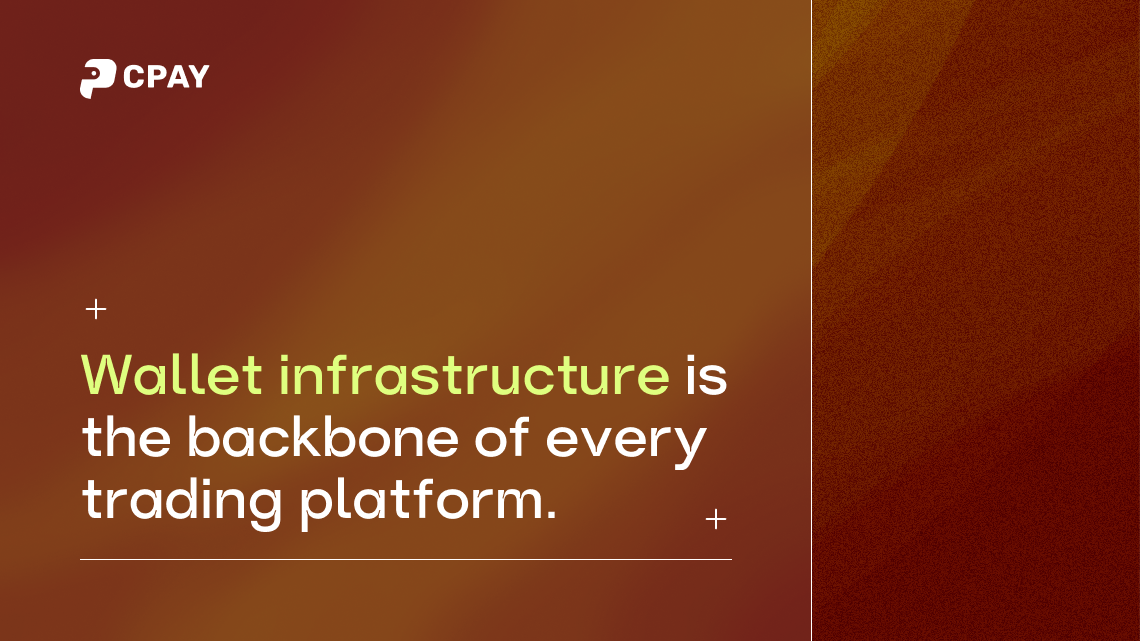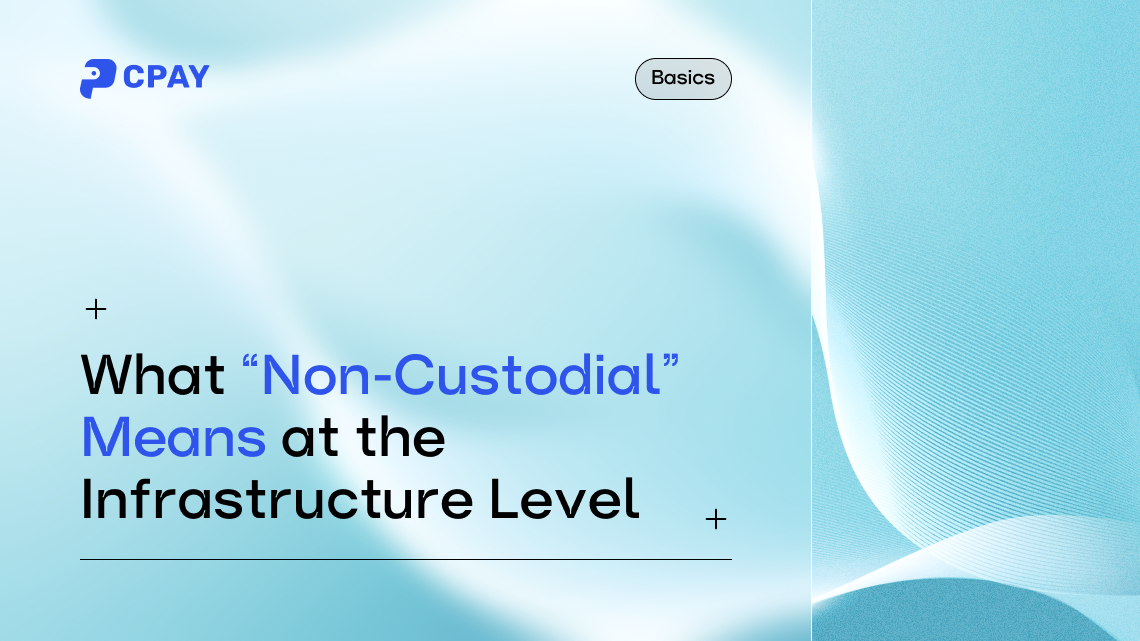Payments are the lifeblood of every business. Whether you run an online store, a SaaS product, or a global marketplace, your customers expect one thing: a fast, simple, and secure way to pay.
The challenge is that the payment ecosystem is fragmented. Banks, card schemes, mobile wallets, local methods, and now crypto — connecting to each one individually would take enormous resources. That’s why companies turn to Payment Service Providers (PSPs).
A PSP is a third-party company that acts as a hub between merchants, banks, card networks, and alternative payment systems. Instead of building dozens of integrations, a business connects once — and instantly gains access to multiple payment rails.
How PSPs Actually Work
When a customer initiates a transaction, the process looks simple — “Pay now,” a few seconds of waiting, and a confirmation. But underneath, the PSP manages several critical steps:
- Capturing and encrypting data — whether it’s a credit card number, digital wallet, or crypto address.
- Routing the request — sending payment information to the right acquiring bank or payment network.
- Authorization — checking with the issuing bank if the customer has sufficient funds and if the payment is legitimate.
- Settlement — transferring the cleared amount into the merchant’s account, often across currencies or borders.
Without a PSP, merchants would need to build and maintain all of these pipelines themselves. With a PSP, it all happens seamlessly in seconds.
Benefits of Using a PSP
The main reason PSPs became essential is that they reduce friction — both for the business and for the customer.
- One partner instead of many → no need for dozens of bank contracts.
- Faster market entry → businesses can start accepting payments within days.
- Customer convenience → support for local payment methods, cards, wallets, and even crypto.
- Security and compliance → PSPs ensure PCI DSS standards, fraud monitoring, AML/KYC, and data protection.
- Cross-border reach → PSPs offer multi-currency support and optimized routing to reduce fees on international payments.
- Scalability → as a company grows, adding new countries, currencies, or payment methods is simple.
In short: PSPs make payments flexible, affordable, and global.
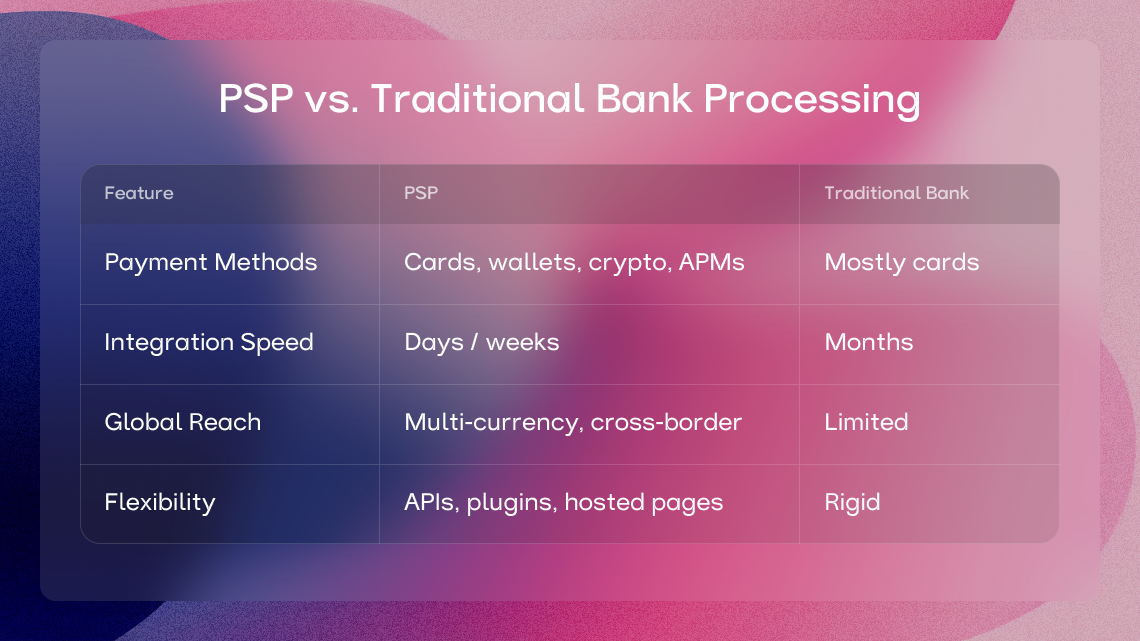
PSPs and the Evolution of Payments
The role of PSPs has expanded over the last decade. Initially, they were just facilitators for online card payments. Today, they are full-stack platforms offering:
- Omnichannel solutions (in-store, mobile, online).
- Smart routing (choosing the cheapest or fastest network automatically).
- Alternative payments (local methods like iDEAL in the Netherlands or UPI in India).
- Crypto support (stablecoins and multi-chain payments, as offered by solutions like CPAY).
- Advanced analytics (helping businesses track success rates, chargebacks, and customer behavior).
This evolution reflects how consumer expectations have shifted: people now demand instant, borderless, and flexible payments. PSPs are the infrastructure that makes this possible.
Examples of PSPs
Well-known players like Stripe, Adyen, PayPal, and Worldpay dominate the traditional PSP space. In the Web3 economy, CPAY builds on this model, providing crypto-native PSP infrastructure with stablecoin support, multi-chain payments, and developer-friendly APIs.
Final Thoughts
A Payment Service Provider is more than a middleman. It’s the engine behind modern commerce. By simplifying integrations, ensuring compliance, and enabling global reach, PSPs let businesses focus on growth instead of technical complexity.
For merchants, choosing the right PSP can determine how fast they expand, how much they save on fees, and how satisfied their customers feel at checkout.
In a world where payments are becoming increasingly diverse - from local wallets to stablecoins - PSPs aren’t just useful. They are essential.





